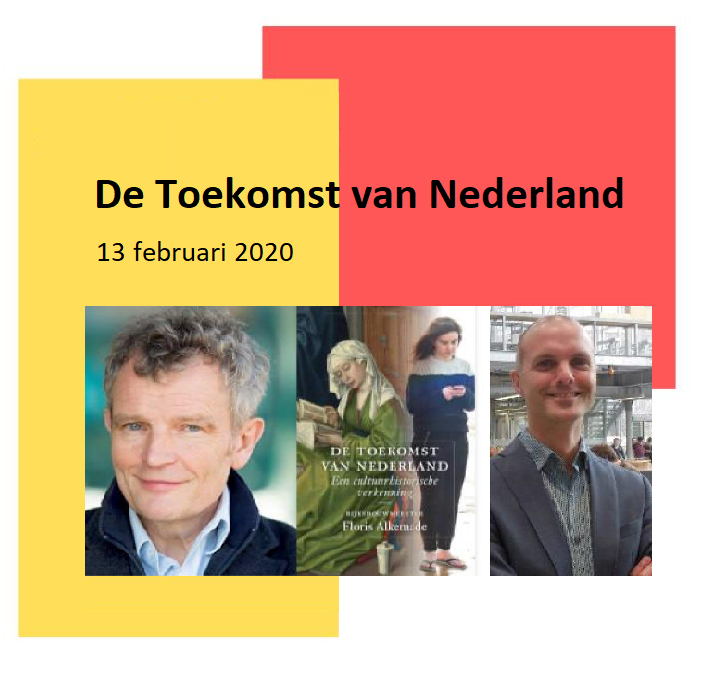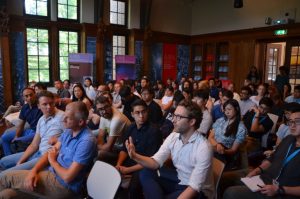In a special event Chief Government Architect Floris Alkemade gives a glimpse into his new essay “The Future of the Netherlands” and urban designer and architect Maurice Harteveld will explain how the city of the future can continue to offer everyone a place. Discussion is open to the public.
Tag Archives: agent
Fluid Urbanism
Should dwelling options be re-conceived in the city of the future? Are the urban fabric and its public spaces more fluid in the future thanks to the advantages of emerging and new techologies?
Sharon Wohl, assistant professor in Architecture and Urban Design at Iowa State University, examines the creation of housing as a more nimble, flexible component: one capable of deploying to different sites and atmospheres, while simultaneously providing more broadly distributed access to amenities that otherwise remain limited to the privileged few. These ideas are operationalised through a speculative case study: a mobile dwelling architecture that can be deployed to various sites across the city – each being characterized by particular ‘niche’ offerings. Here, rather than dwelling units being considered as static entities within the urban fabric, they are re-considered as nimble, deployable agents – able to relocate to different sites and settings in accordance with different parameters that are customized through individual cost-benefit analyses and feedback dynamics. Accordingly, over time, bottom-up, self-organizing ‘niches’ of fit inhabitation emerge. The talk associates this kind of designed urban environment with the dynamics of complex adaptive systems – where emergent global features arise from the bottom-up. Here, a new kind of ‘swarm’ urbanism is deployed: one adjusting over time in response to atmospheric variables.
(closed discussion in The City of the Future Lab, TU Delft)
Conversations in the Anthropocene

Introducing the Anthropocene
Colin Waters is Secretary of the Anthropocene Working Group of the Subcommission on Quaternary Stratigraphy, the body investigating the Anthropocene as a potential geological time unit. His working group is putting forward a proposal towards the recognition of the proposed new epoch. They started in 2009 and up until last year, they were pulling together all information that was available. “For example the biological changes that have happened are irreversible. Once species are transferred across the planet, you can’t put them in a box and put them back in their indigenous state”, he has explained while being our guest in Delft: “Even things like carbon dioxide, this will last as a signal for thousands of years. Even if we are reducing our carbon emission immediately, we are still looking at emissions which are going to be elevated above natural levels for thousands of years. At the present, there is no indication that we are changing that trend.” The human impact may be like a meteorite impact. At the end of the Cretaceous Period when the dinosaurs became extinct, a spike of iridium (an extra-terrestrial element) changed the conditions on Earth. “You still find a layer of a few millimeters thick which is high in iridium, and we can use that as the basis of the start of the new Paleogene Period following the Cretaceous.” It has been “a state change, a game-changer, to a state which now is very different from what it was before and is not recreatable to a large extent either.” What is our share, as designers?
Architecture is perhaps one that we have not mined sufficiently in the past that can provide information that is new to us and help build the story that we are developing. – Colin Waters
City of the Future Competition
Making Cities in Times of Major Transitions
On January 10, 2018, our research ‘The City of the Future’ has starts. This study explores new ways of city making by using five test locations of 1 x 1 km in the cities of Amsterdam, Rotterdam, The Hague, Utrecht and Eindhoven (five most populated cities in The Netherlands). We question how we can interrelate urban development, whilst urban design, planning and engineering, to upcoming challenges like shifts in transport, energy transition, circular economy and other system and network innovations, in times of the next generation of densification.
Continue reading
Public Space: Changing Values
The Quest for Public Space: Changing Values in Urban Design, The City as Learning Lab and Living Lab
This article highlights the dynamics of values in our reasoning on public space. By means of an epistemological study, it tests the contemporary premises underlying our ways to safeguard the inclusive, democratic, agential city, and, as such, it aims to update our view on urban design. The article raises three subsequent questions: [i] Is the city our common house as perceived from the Renaissance onward, containing all, and consequently are public spaces used by the people as a whole? [ii] Is the city formalising our municipal autonomy as emphasised since the Enlightenment, in an anti-egoistic manner, and in this line, are public spaces owned by local governments representing the people? And, [iii] is the city open to our general view as advocated in Modern reasoning, restricting entrepreneurial influences, and synchronically, is its public spaces seen and/or known by everyone? – Inclusiveness, democracy, agentiality are strongholds in our scientific thinking on public space and each issue echoes through in the practice on urban design. Yet, in an aim to keep cities connected and accessible, fair and vital, and open and social, conflicts appear. Primarily based upon reviewing urban theory and particularly experiencing the Amsterdam for this matter, the answering of questions generates remarks on this aim. Contemporary Western illuminations on pro-active citizens, participatory societies, and effects of social media and micro-blogging forecast a more differentiated image of public space and surmise to enforce diversification in our value framework in urban design.
See:
Harteveld, Maurice G. A. D. (2017) The Quest for Public Space: Changing Values in Urban Design, The City as Learning Lab and Living Lab, IN Tieben, Hendrik, Yan Geng, and Francesco Rossini (eds) The Entrepreneurial City, , Rotterdam: International Forum on Urbanism (IFoU) / Hong Kong: School of Architecture, The Chinese University of Hong Kong, pp. 395-411
or alternative link
Exploring Metropolitan Design
The Amsterdam Institute for Advanced Metropolitan Solutions (AMS), the Delft Deltas, Infrastructures & Mobility Initiative (DIMI), and the International Forum on Urbanism (IFoU) joined Delft University of Technology in the organisation of the interdisciplinary 2017 Summer School:‘Making the Metropolis: Exploring Interdisciplinary approaches in Metropolitan Design Engineering’.


